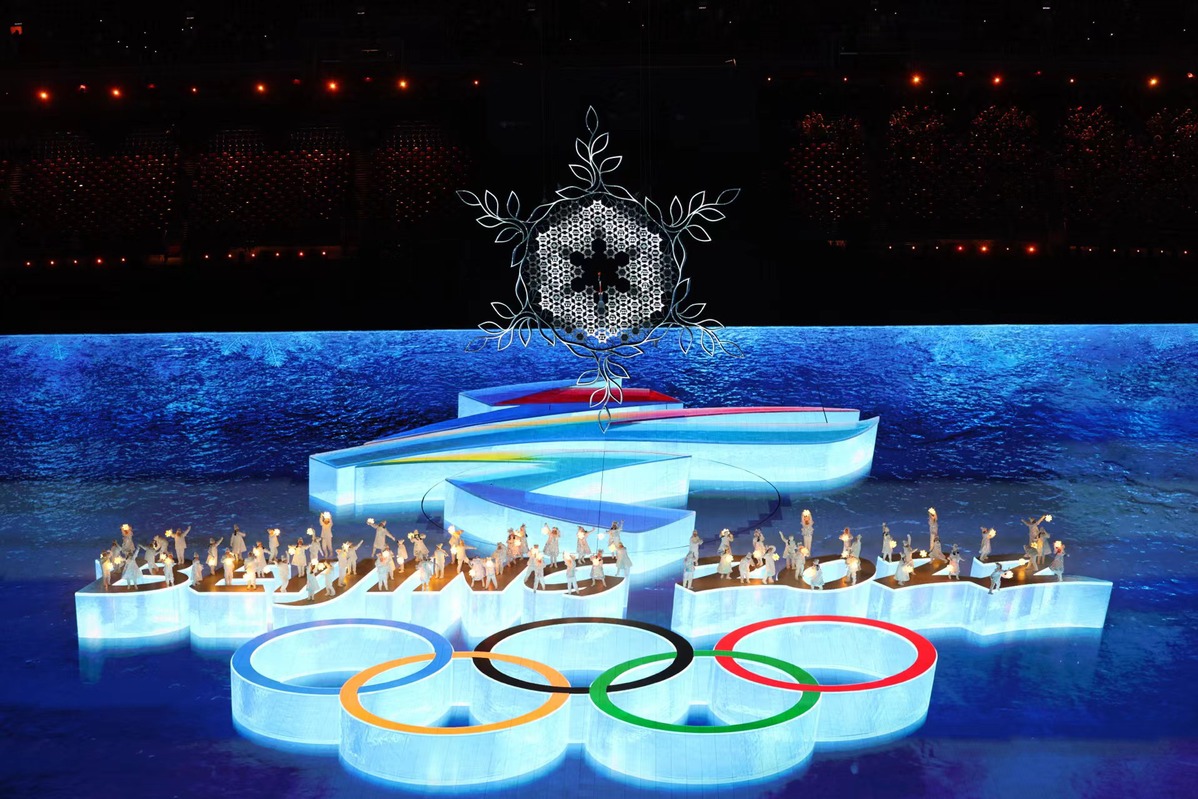China defied odds to deliver an impressive Winter Olympics


After 16 days of spectacular displays of talent spanning 109 medal events, the Beijing Winter Olympics Games came to an end last month. Thanks to an impressive execution, the games doused concerns over the COVID-19 pandemic and growing geopolitical tensions to unite humanity in expressing the Olympic spirit.
Drawn from 91 countries and regions, athletes demonstrated great sportsmanship, embracing each other in true Olympian fashion. As the last embers faded from the Olympic flame, a new spirit of unity fell upon the Bird's Nest, the national stadium where both opening and closing ceremonies were held.
In hosting the Winter Games, Beijing now goes into the annals of history as the first city to successfully stage both summer and winter Olympics. Yet, this was not the only "first" witnessed during the sporting bonanza. The Games were the first to achieve carbon neutrality; a major feat that has raised the prospects of wide adaption of green energy in the backdrop of climate crisis.
China's massive investments in the renewables sector ahead of the Games paid off, with impressive displays of technology including hydrogen-powered cars and the world's largest hydro energy storage battery. China is now the global leader in wind and solar power production, giving Beijing significant headroom to share its technology and experience with the rest of the world.
Another key highlight of the Winter Games regards China's epidemic control. The closed-loop system that began in late January resulted in the overall infection rate standing at just 0.01 percent, an incredible feat that has since been lauded by the International Olympics Committee and multiple sporting federations around the world.
IOC President Thomas Bach declared the Olympics arena as one of the safest places on this planet, if not the safest. Safety measures including regular screenings, designated shuttle buses and vaccination requirements made participants feel safe and comfortable, contrary to earlier fears that led to some quarters calling for a postponement.
The Beijing Winter Games also proved to be a unifying force for the world. Despite the prevailing wave of the pandemic, the Games were attended by over 30 world leaders including United Nations Secretary-General Antonio Guterres, demonstrating greater international support.
The resulting global enthusiasm for the games, including in the United States where as many as 14 million people followed the Games' opening ceremony, sent a resounding verdict about the role of the Olympics in curing historical, cultural and even ideological divides. Around the world, two billion people watched the games, according to the IOC. Even in Africa, where winter sports remain relatively nascent, six countries participated.
The Beijing Winter Games leaves a three-pronged legacy in its wake. First, sports can be a force to confront global challenges such as nationalism, pseudo-multilateralism and unilateralism. Secondly, participants drawn from far and wide take home the message that with unity and dedication, it is possible to defeat COVID-19. Finally, the Games fueled targeted climate action that resonates with the global desire to pull Planet Earth from the brink of climate catastrophe.
The world is currently confronting many problems only functional multilateral action can ameliorate. The Beijing Winter Olympics motto of "Together for a Shared Future" should serve to rally the world in preparation for the 2026 edition to be hosted by the Italian cities of Milan and Cortina d'Ampezzo.
The writer is a scholar of international relations with a focus on China-Africa cooperation. Twitter: @Cavinceworld


































